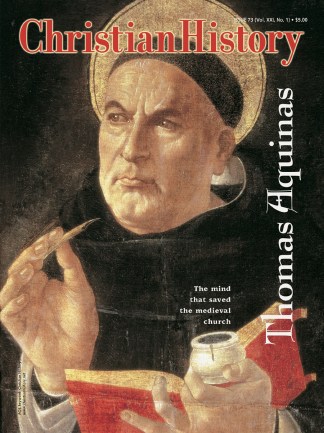In Naples Thomas possessed his own residence, his own retinue, a host of servants. He took up riding on horseback, with plumes and flowing silks, around the bay.
He visited the blue grotto and Capri. He had a taste for beauty and liked to repeat Augustine’s saying: “If the work of His hands be so lovely, O how much more beautiful must be He who made them.” He learned lucidity as much from the clear outlines of the bay as from the venerable old Irishman who taught him.
And then quite suddenly, saying nothing to his parents, he embraced the Dominican Order of Preachers, put on their white and black habit, and announced that his titles were henceforth in abeyance. He seemed hardly aware of the furor that would inevitably arise from his action.
His mother complained to the Pope and the Archbishop of Naples. He had been a prince and was now vowed to mendicancy as a wandering friar, and he did not care. The Pope offered to make him Lord Abbot of Montecassino with the privilege of wearing his Dominican habit. He refused and wandered alone to Rome. His mind was made up.
Years afterwards, when he came to write the Summa Theologica, he wrote beneath the question: “Whether duties toward parents are to be set aside for the sake of religion?” the simple answer: “Whoever loves father or mother more than Me is not worthy to follow Me,” and he quoted from Jerome’s famous letter to Heliodorus: “Though your father fling himself down on the doorstep, trample him underfoot, go your way and fly with dry eyes to the standard of the Cross.”
— from Robert Payne, The Fathers of the Western Church (Viking, 1951). Used by permission.
Copyright © 2002 by the author or Christianity Today/Christian History magazine. Click here for reprint information on Christian History.










